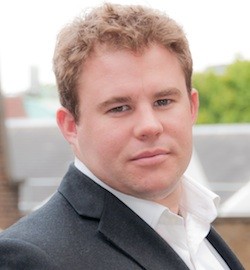
On the same day that a committee of the European parliament looked to put the brakes on high-frequency trading, Germany’s cabinet approved a draft law for new rules governing HFT—with some of the German text contradicting what MEPs had earlier come to agreement on after months of debate.
Slipping slightly under the radar of Wednesday’s bigger MiFID II announcement in Brussels, which promises sweeping reforms to Europe’s financial markets including HFT, Germany passed its own legislation on HFT so that it can have some rules in place before MiFID II becomes law, which is expected around 2015.

Matthew Coupe, sales director, Redkite Financial Markets
“Germany has taken a separate stance and has come out with its own regulation which is going to front-run MiFID II,” Matthew Coupe, sales director of Redkite Financial Markets, a provider of real-time market surveillance systems, told Markets Media .
Under MiFID II, the European parliament has come down hard on HFT with the most controversial new rule being the introduction of a minimum resting time for orders to remain valid on an exchange for at least 500 milliseconds, which is far longer than most HFT firms stay in the market.
However, the new German laws, which aim to be in place early next year, have no provision for HFT firms to hold on to securities for a set time. Germany wants to introduce the new law as it currently has no way of monitoring HFT, which accounts for roughly 50% of all trades on the Deutsche Börse, Germany’s main exchange based in Frankfurt. However, the MiFID II rules will eventually supersede any German legislation once MiFID II is up and running.
Germany also wants to monitor all algorithms used by super-fast traders, HFT firms to have a permit to trade on German venues, with exchanges to set limits for order-to-trade ratios and fine players who go over these levels or delete too many orders with no intention of buying. Like MiFID II, Germany wants to introduce ‘circuit breakers’ to suspend trading if there are sudden increases in order flows or market stresses.
The HFT community are willing the German rules, although tough, to work as they fear that the MiFID II rules are far harsher and without logic and could bring more unintended consequences.
“Clearly, the German ministry of finance has set an example of how you work these rules out and implement them very quickly,” said Mark Spanbroek, secretary-general of Brussels-based FIA European Principal Traders Association, a proprietary trading group which represents firms that trade on their own capital on European exchange-traded markets, such as Knight Capital, Optiver, Getco, Citadel Securities and Quantlab Financial.
“Obviously Europe needs to pick up on the German example and learn from that.”
The German rules are seen as complementing the guidelines put in place earlier this year by the European Securities and Markets Authority (Esma), the pan-European regulator, on automated trading.
“The German regulation very much covers some of the Esma automated guidelines,” said Coupe. “Esma’s automated trading guidelines are a great first step in terms of trying to look at what is going on with trading activity.”
Politicians and regulators around the globe are looking to crack down on HFT after recent trading disasters, such as the Knight Capital debacle last month and the U.S. ‘flash crash’ of May 2010, and watchdogs from as far afield as Canada, Hong Kong and Australia are all looking into separate ways of curtailing the practice.
“Higher fees in Canada, stricter monitoring in Germany and stress testing in Australia,” said one market participant. “With MiFID growing stronger, I smell trouble in HFT land.”





